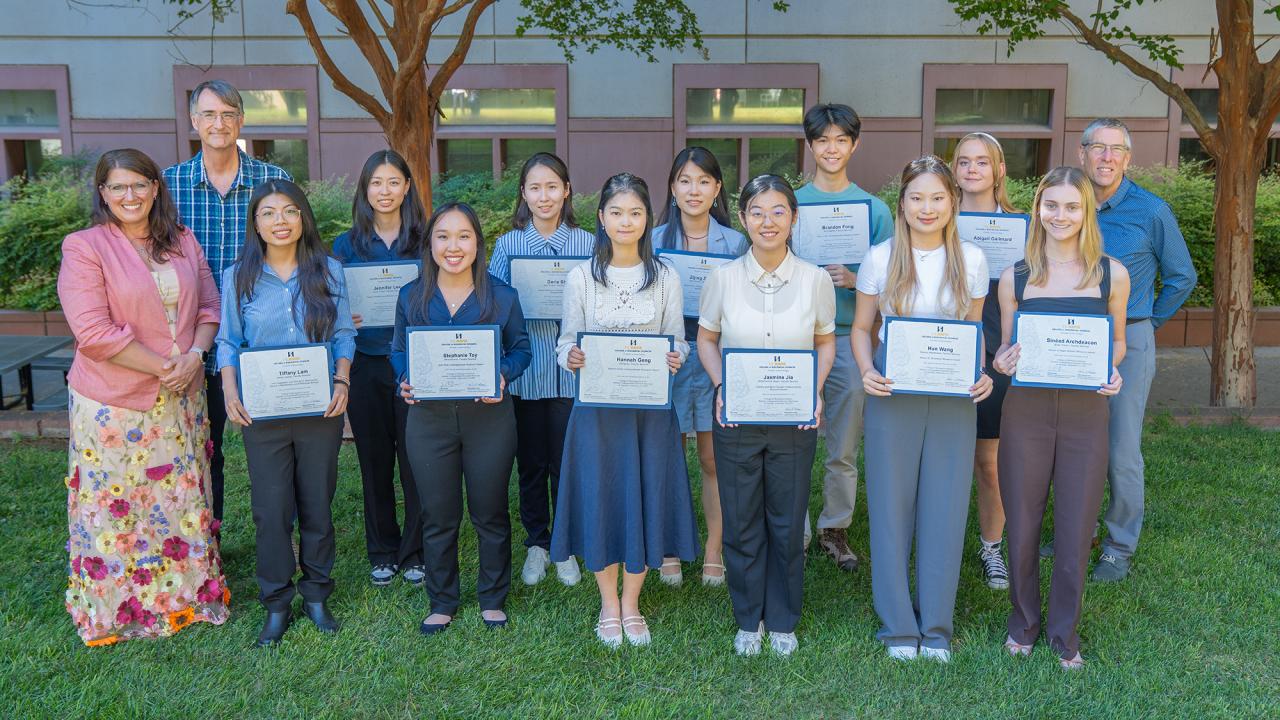
Donor-Supported Awards Give Undergrads Summer of Research Experiences
Each year, the CBS Dean’s Summer Undergraduate Research Program (SURP) supports students who wish to stay on campus—and in the lab—over the summer term.
Normally, undergraduates leave campus for the summer if they are not enrolled in classes. They often do this to work and save funds for the start of the next academic year. SURP consists of several different donor-funded undergraduate research awards and allows students to continue their research projects over the summer.
“Each year we get to see the remarkable breadth and depth of study our students engage in over the summer, which is a testament to our remarkable donors who have given in support of these enriching experiences,” said Mark Winey, dean of the College of Biological Sciences. “I am so grateful that we can continue to provide hands-on experiential learning opportunities for so many students, especially over the summer.”
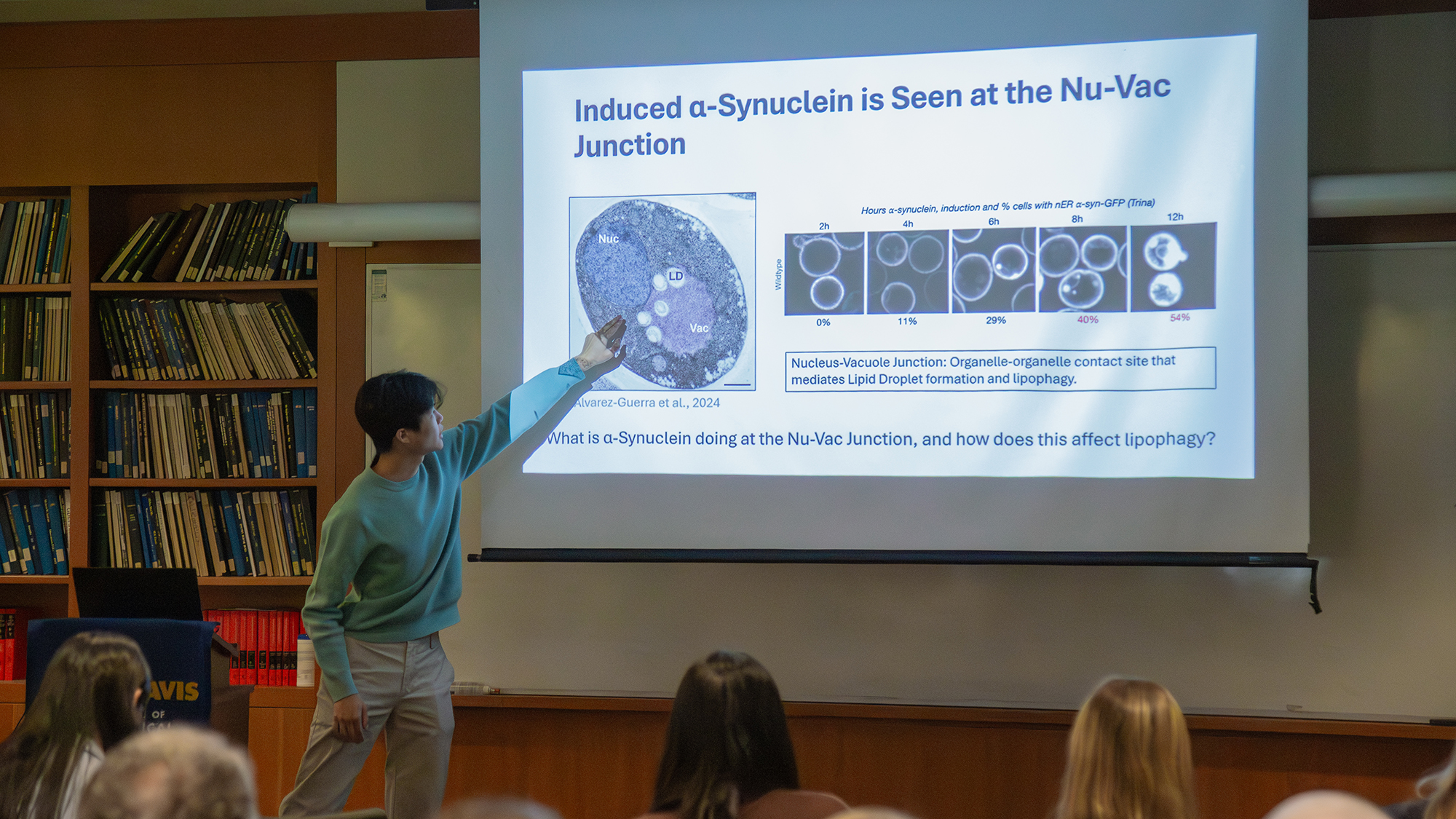
This year’s cohort of SURP scholars began their projects earlier in the 2024-25 academic year. Over the summer, students in the program work directly with individual faculty on research projects and meet regularly with faculty and staff organizers of the program.
“Each cohort of SURP scholars impresses and amazes me,” said Helen Frasier, assistant dean for student success initiatives. “Their curiosity, enthusiasm for their research, and commitment to advancing their skills and science together are inspiring. It was a pleasure to see our scholars dive deeply into their topics and grow as scientists.”
Over the summer, SURP scholars meet with guest speakers from academia to industry, discuss their research experiences, and collaboratively develop their presentations for the research showcase. So, there’s plenty for Frasier and her colleague, Dave Furlow, a professor of neurobiology, physiology and behavior, to do.
Furlow, who has been involved with SURP for two years, worked with Frasier to coach, mentor and organize the student cohort. “It’s been rewarding to watch this summer’s SURP cohort grow as scientists while spending the summer working in much the way our graduate students do,” said Furlow. “This experience allows them to make impressive research progress and solidify their future career interests in science.”
Meet the 2025 Cohort of SURP Scholars
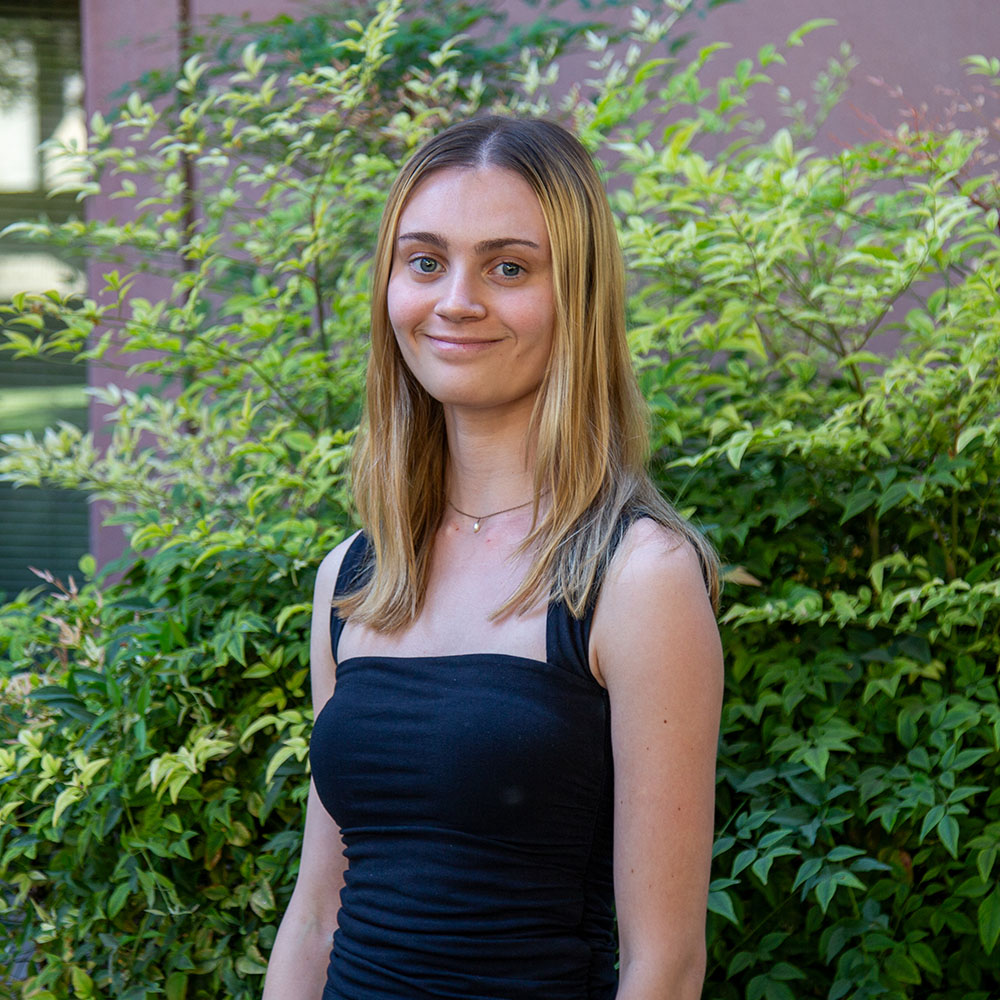
Sinéad Archdeacon
Major: Neurobiology, Physiology, and Behavior
Lab: Brian Trainor, Psychology
Award: Alumni to Aggie Student Research Award Supplemented by the Ruth K. Pryer and Nancy K. Pryer Undergraduate Opportunity Fund
Project summary: Validating an enhancer-based construct for targeting somatostatin neurons in the California mouse
My project characterizes the accuracy of an enhancer-based viral construct for labeling somatostatin neurons in the bed nucleus of the stria terminalis (BNST). I perform in situ hybridization to identify somatostatin-expressing neurons and measure their overlap with virally tagged cells. My eventual goal is to pair the enhancer with a modulator to manipulate somatostatin expression prior to behavioral testing in the California mouse, which is a useful model organism for studying social interaction. This work further develops my skills in molecular neuroscience and data analysis, while contributing to a cross-lab collaboration exploring how specific neural populations shape behavior.
Why it matters: This research may provide a clearer picture of how the brain circuits that control social interaction are wired, informing future work on mental health treatments.
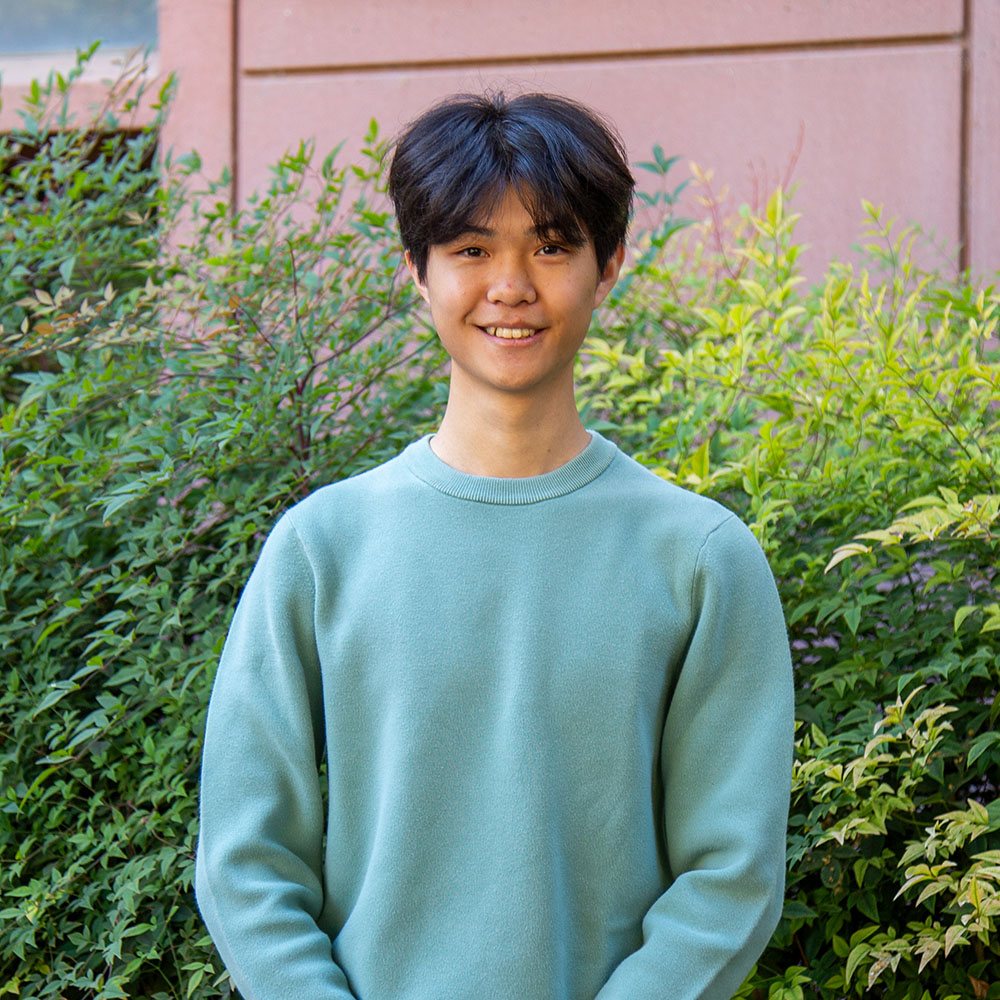
Brandon Fong
Major: Biochemistry and Molecular Biology
Lab: Kaplan Lab, Molecular and Cellular Biology
Award: Roy H. Doi Undergraduate Research Award
Project summary: Investigating α-synuclein stress and autophagy pathways in yeast
Using yeast as a model system, my project explores how α-synuclein stress—linked to Parkinson’s disease—interferes with nutrient and ER autophagy pathways. By examining the role of α-synuclein in disrupting lipophagy and ER-phagy, I aim to clarify mechanisms of early disease pathogenesis. This work strengthens my knowledge of cellular stress responses and contributes to broader efforts to understand neurodegenerative disease.
Why it matters: This research sheds light on how cellular stress contributes to Parkinson’s disease, with potential to guide new treatments.
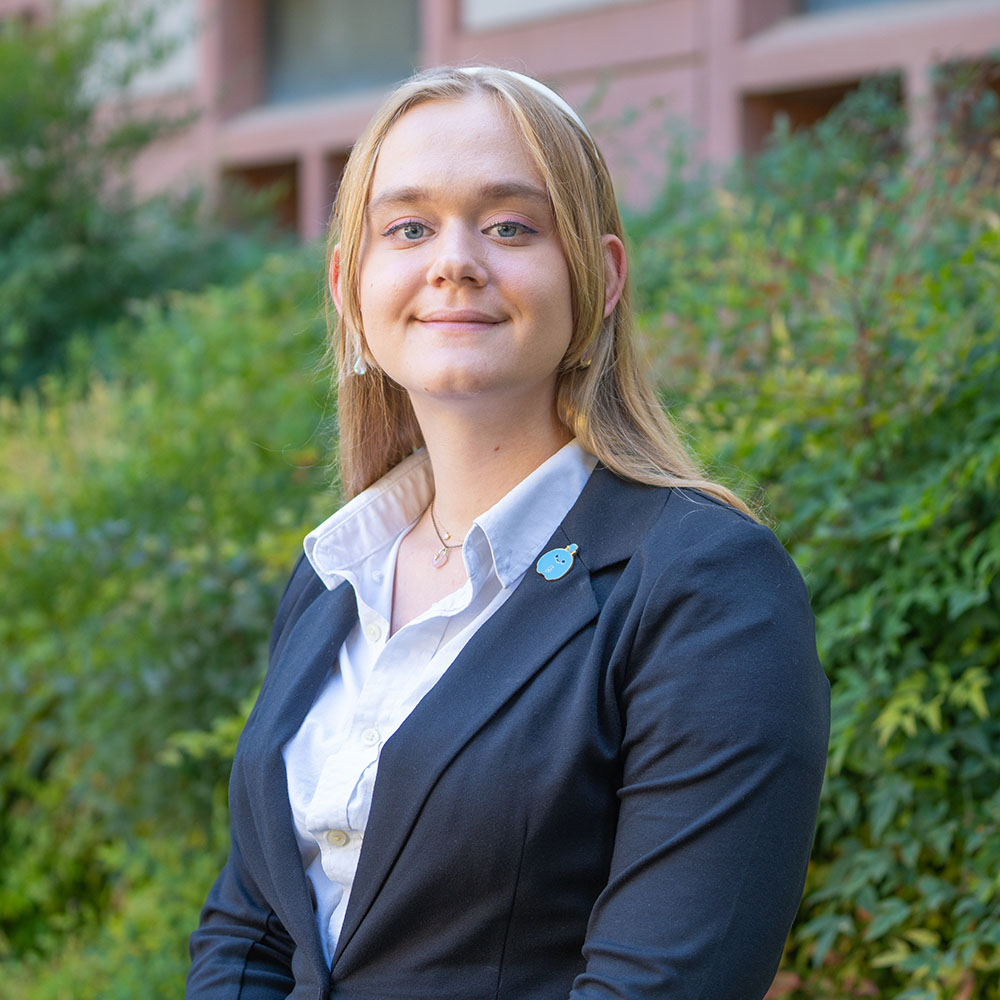
Abigail Gailmard
Major: Biochemistry
Lab: Mark Huising, Neurobiology, Physiology, and Behavior
Award: Ruth K. Pryer and Nancy K. Pryer Undergraduate Opportunity Fund
Project summary: Exploring the overlap of cellular markers in the beta cell
My project examines cellular markers implicated in heterogeneous insulin secretion in pancreatic beta cells. Using immunofluorescence staining, confocal microscopy, and a cyclic elution protocol, I am mapping which markers coincide and how often they overlap. This dataset will deepen our understanding of the complexity of beta cell function, providing insight into insulin regulation and disease processes such as diabetes.
Why it matters: By clarifying how insulin is produced at the cellular level, this work contributes to a stronger foundation for understanding and treating diabetes.
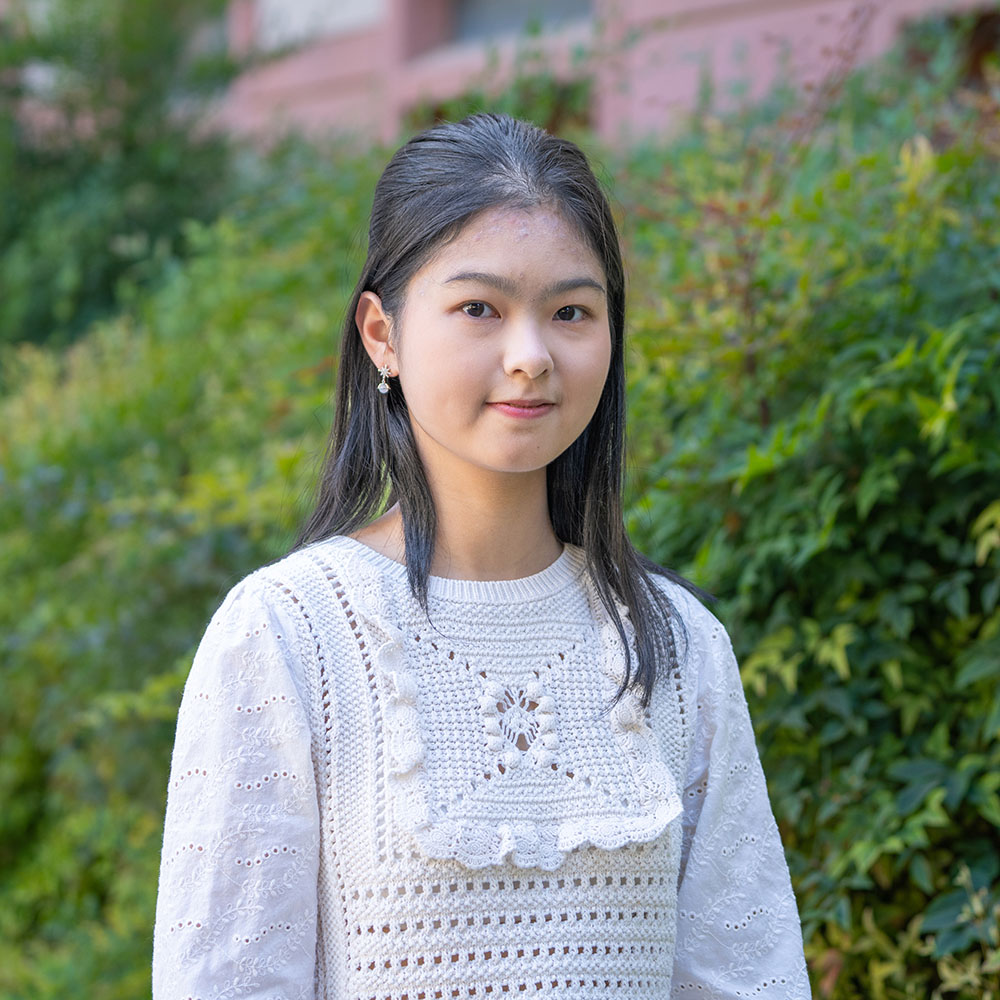
Zihan (Hannah) Geng
Major: Molecular and Medical Microbiology
Lab: Lifeng Xu, Microbiology & Molecular Genetics
Award: Dean’s Circle Undergraduate Research Award
Project summary: Investigating ALT pathways and ATRX/DAXX mutations in osteosarcoma
My research examines how ATRX and DAXX mutations drive alternative lengthening of telomeres (ALT), a pathway used by some cancers to bypass senescence. Using osteosarcoma cell lines, I combine cellular, protein, and genomic approaches to clarify mechanisms underlying ALT. This work aims to inform future development of diagnostic tools and targeted therapies for aggressive cancers.
Why it matters: Uncovering how cancer cells maintain their chromosomes could guide new ways to diagnose and manage aggressive tumors.
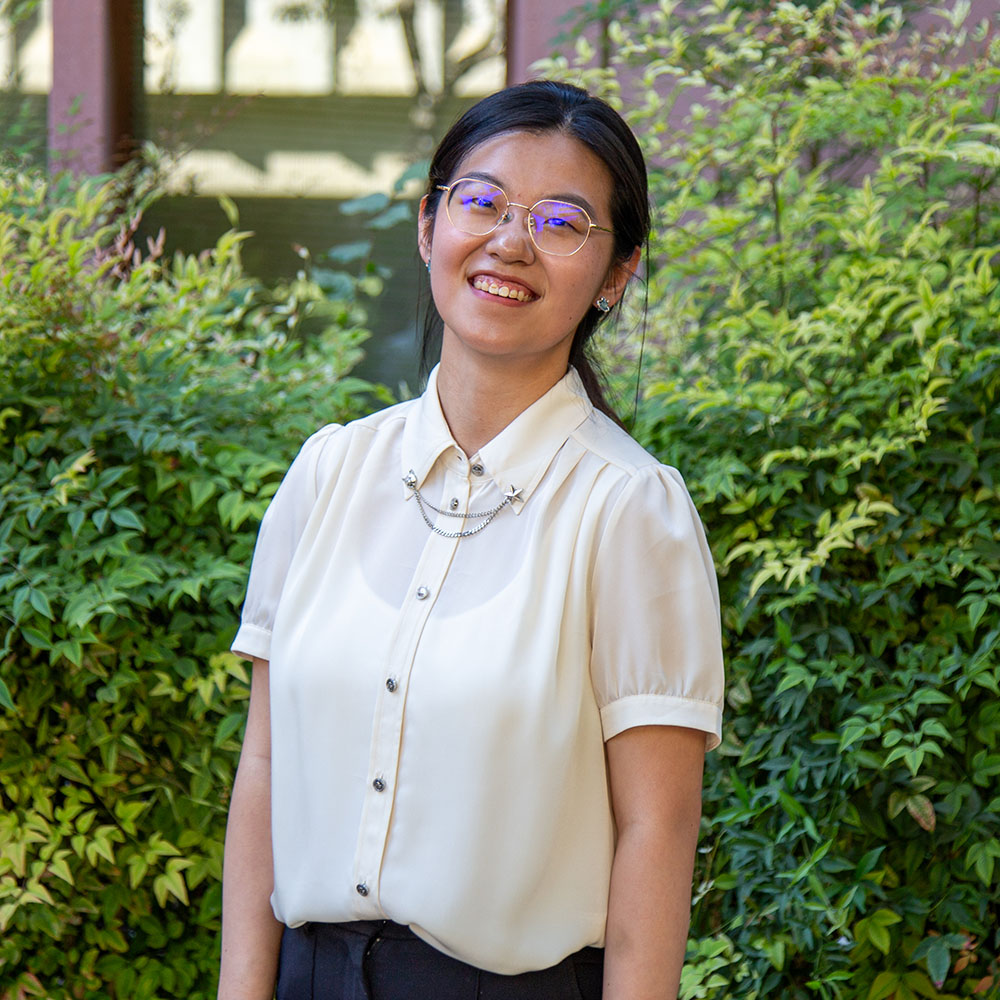
Zhiyuan (Jasmine) Jia
Major: Cell Biology
Lab: Wolf-Dietrich Heyer, Microbiology and Molecular Genetics
Award: Charles and Nanci Cooper Undergraduate Research Award
Project summary: Characterizing a RAD51 mutation linked to Fanconi anemia
This project models the human RAD51-T131P mutation, associated with Fanconi anemia, in yeast. By studying how this mutation disrupts the homologous recombination DNA repair pathway, I aim to uncover mechanisms of disease at the molecular level. This experience has strengthened my interest in DNA repair biology and my long-term goal of pursuing a Ph.D. in molecular genetics.
Why it matters: This work sheds light on how errors in DNA repair contribute to disease, offering broader lessons for human genetics and health.

Tiffany Lam
Major: Biochemistry and Molecular Biology
Lab: Johan Leveau, Plant Pathology
Award: J. Cuppoletti and D. Malinowska Award Supplemented by the Dean's Circle Fund Biochemistry and Molecular Biology
Project summary: Characterization of chemotaxis proteins in Pseudomonas putida
My project investigates the ligand-binding abilities of methyl-accepting chemotaxis proteins in Pseudomonas putida 1290, a model bacterium in the phyllosphere. By combining computational modeling, virtual ligand screening, and mutant analysis, I aim to reveal how these receptors sense amino acids and contribute to bacterial fitness. This research enhances understanding of plant–microbe interactions and the ecological role of chemotaxis.
Why it matters: Understanding how bacteria navigate their environment may reveal strategies plants use to defend themselves and thrive.
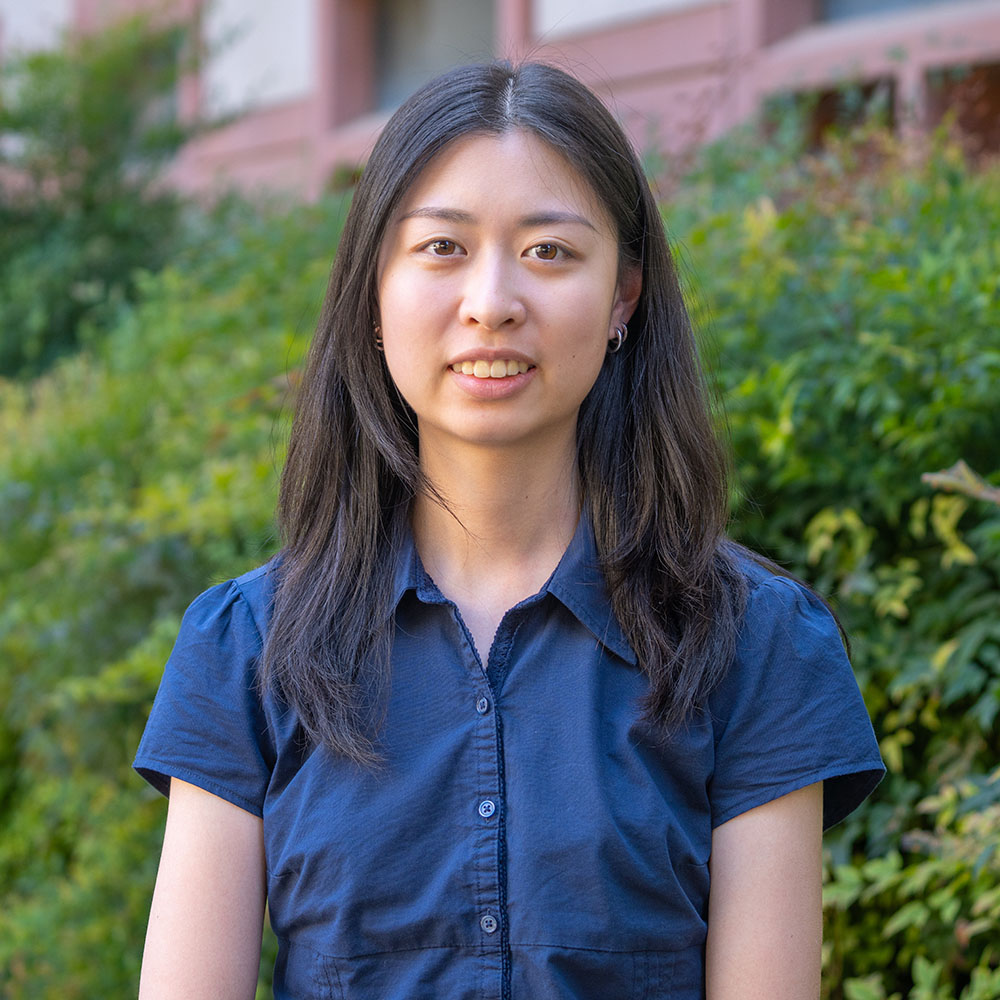
Jennifer Lee
Major: Biochemistry and Molecular Biology
Lab: Justin Siegel, Chemistry, Biochemistry & Molecular Medicine
Award: Stacey Roberts and Michael Lassner Award
Project summary: Machine learning-driven evolution of β-glucosidase B for biofuels
This project applies machine learning tools to accelerate enzyme engineering for sustainable biofuel solutions. By using a protein language model with regression-based prediction, I can identify high-potential mutations and reduce the experimental search space. This research has strengthened my skills in computational biology, experimental design, and scientific communication, while showing me the impact of integrating AI into enzyme design.
Why it matters: Faster, smarter enzyme design can advance renewable biofuels and other sustainable biotechnologies.
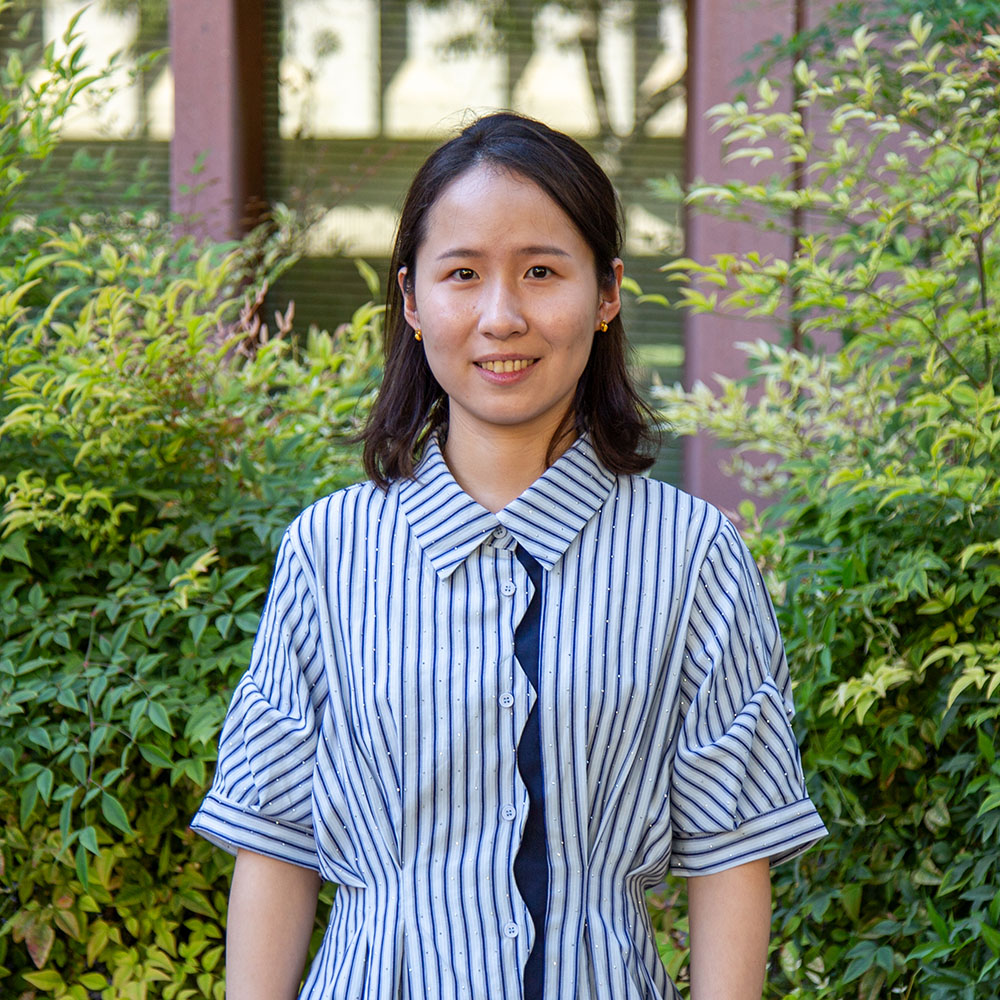
Hanxu (Doris) Sha
Major: Biological Science
Lab: Gitta Coaker, Plant Pathology
Award: Maud Wrightson Hinchee, Ph.D. Undergraduate Research Award
Project summary: Exploring flagellin perception and peptide immune responses in plants
My research investigates plant immune recognition through two projects. First, I use AI-based structural prediction and immune assays to characterize five homologs of the bacterial flagellin receptor in lettuce. Second, I examine how plant age and peptide concentration affect immune responses in Arabidopsis, optimizing conditions to test resistance against bacterial pathogens. Together, these studies reveal how natural variation shapes immune perception and inform future strategies for enhancing crop immunity.
Why it matters: By uncovering how plants recognize pathogens, this research supports efforts to strengthen crop immunity and sustainable agriculture.

Stephanie Toy
Major: Molecular and Medical Microbiology
Lab: Alice Accorsi, Molecular and Cellular Biology
Award: John Roth Undergraduate Research Award
Project summary: Identifying retinal ganglion cells in Pomacea canaliculata
This project investigates retinal ganglion cells in the golden apple snail, a model organism with remarkable regenerative abilities. Because these snails can fully regenerate their eyes, studying their retinal cell types may reveal parallels with vertebrate retinas. My research seeks to better understand how these cells transmit visual information, with potential applications for improving treatments for human visual impairments.
Why it matters: The apple snail’s ability to rebuild its eyes offers a rare model for studying regeneration, with lessons that could inspire new approaches in medicine.
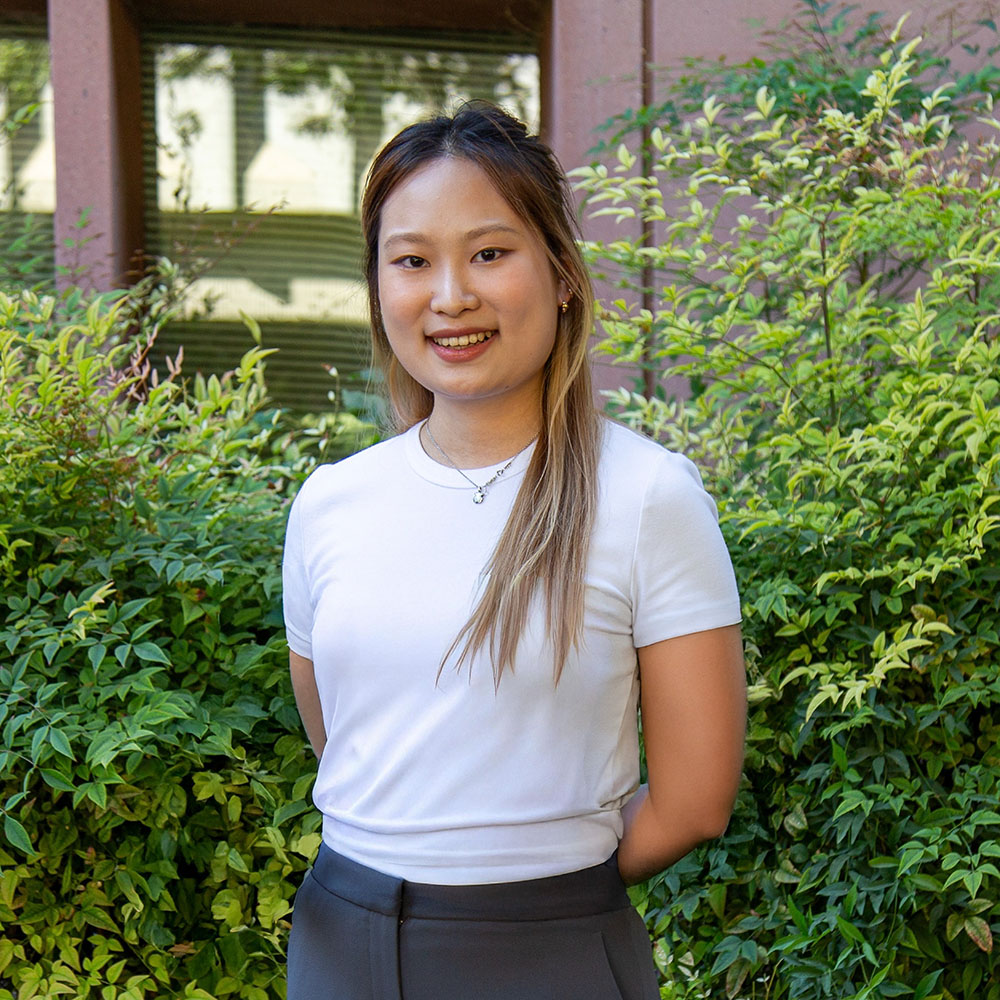
Han Wang
Major: Molecular and Medical Microbiology
Lab: Satoshi Namekawa, Microbiology and Molecular Genetics
Award: Robert S. Blumberg Research Award
Project summary: Investigating the role of MLL4 in spermatogenesis
This project examines MLL4, a histone methyltransferase that regulates gene expression by mediating H3K4 mono-methylation. Using a conditional knockout mouse model targeting male germ cells, I investigate how MLL4 influences spermatogenesis through molecular and histological analyses. My goal is to clarify how epigenetic regulation contributes to male fertility and to broaden understanding of the role of chromatin modifiers in reproductive biology.
Why it matters: Understanding how epigenetic factors regulate sperm development may offer insights into male infertility and reproductive health.
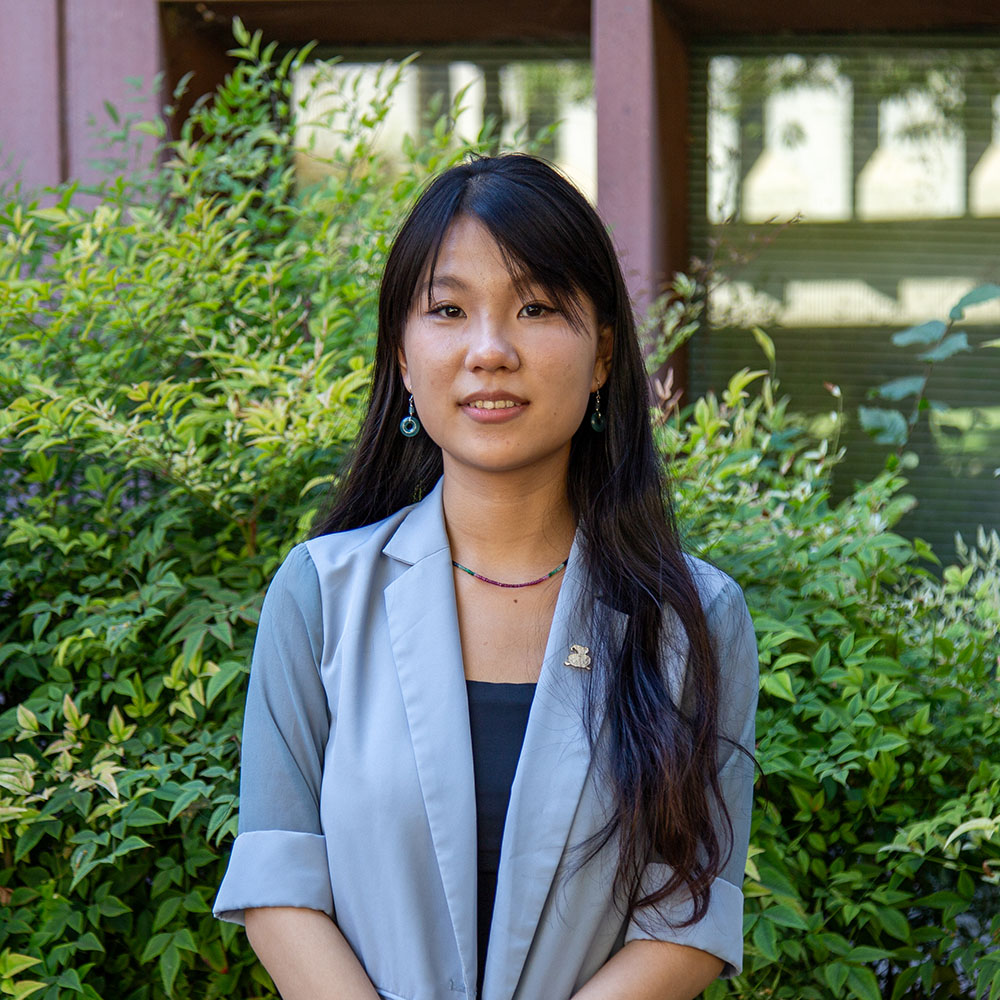
Zijing Zhang
Major: Biochemistry and Molecular Biology
Lab: Hunter Lab, Microbiology and Molecular Genetics
Award: Raymond L. Rodriguez Undergraduate Research Award
Project summary: Investigating SUMOylation of Zip3 during meiotic recombination
My project investigates how SUMOylation regulates Zip3, a meiotic E3 ligase essential for crossover formation. By studying SUMO-deficient mutants and conducting rescue experiments, I aim to clarify how SUMO modification controls Zip3 activity, ensuring accurate chromosome segregation and spore viability. This work has given me experience with gene editing and protein analysis, while deepening my interest in the molecular mechanisms of meiosis.
Why it matters: Revealing how proteins control chromosome segregation ensures healthy cell division and helps explain causes of infertility and birth defects.
SURP culminated in a research showcase on Tuesday, September 16, where students presented their research projects and findings to their peers, mentors and college leadership.
